
Ouahigouya: The Gateway to Northern Burkina Faso
Ouahigouya is a vibrant city in northern Burkina Faso, offering a unique blend of culture, history, and natural beauty. Known for its friendly locals and rich traditions, Ouahigouya serves as an excellent introduction to the region's heritage. The city is home to the ancient Yatenga Kingdom, and you can explore various historical sites that tell the story of its glorious past. One of the notable attractions in Ouahigouya is the grand mosque, which stands as a remarkable example of Sahelian architecture. The bustling central market is another must-visit spot, where you can experience local life and shop for handmade crafts, textiles, and fresh produce. The market is a sensory delight, filled with vibrant colors and the aroma of traditional foods. Nature enthusiasts will find joy in the nearby Lake Bam, a serene spot perfect for bird-watching and picnicking. The lake is surrounded by lush greenery and offers a peaceful escape from the city's hustle and bustle. Don't miss the opportunity to explore the surrounding villages, where you can witness traditional dances, music, and crafts firsthand. Ouahigouya is also a gateway to the Sahel region, making it an excellent base for exploring the area's natural landscapes and cultural landmarks. Whether you are a history buff, a nature lover, or simply looking to immerse yourself in local culture, Ouahigouya promises an enriching and unforgettable experience.
Local tips in Ouahigouya
- Visit the central market early in the morning to experience the bustling atmosphere and get the best selection of goods.
- Dress modestly when visiting religious sites, such as the grand mosque, to show respect for local customs.
- Hire a local guide to explore the historical sites and surrounding villages for a more in-depth understanding of the culture and history.
- Carry cash with you, as credit card facilities may be limited in the city and surrounding areas.
- Stay hydrated and wear sun protection, as the weather can be quite hot, especially during the dry season.
Ouahigouya: The Gateway to Northern Burkina Faso
Ouahigouya is a vibrant city in northern Burkina Faso, offering a unique blend of culture, history, and natural beauty. Known for its friendly locals and rich traditions, Ouahigouya serves as an excellent introduction to the region's heritage. The city is home to the ancient Yatenga Kingdom, and you can explore various historical sites that tell the story of its glorious past. One of the notable attractions in Ouahigouya is the grand mosque, which stands as a remarkable example of Sahelian architecture. The bustling central market is another must-visit spot, where you can experience local life and shop for handmade crafts, textiles, and fresh produce. The market is a sensory delight, filled with vibrant colors and the aroma of traditional foods. Nature enthusiasts will find joy in the nearby Lake Bam, a serene spot perfect for bird-watching and picnicking. The lake is surrounded by lush greenery and offers a peaceful escape from the city's hustle and bustle. Don't miss the opportunity to explore the surrounding villages, where you can witness traditional dances, music, and crafts firsthand. Ouahigouya is also a gateway to the Sahel region, making it an excellent base for exploring the area's natural landscapes and cultural landmarks. Whether you are a history buff, a nature lover, or simply looking to immerse yourself in local culture, Ouahigouya promises an enriching and unforgettable experience.
When is the best time to go to Ouahigouya?
Essential places to dine
SIKA LOUNGE
Discover the culinary delights of SIKA LOUNGE in Ouagadougou - where local flavors meet international cuisine in a vibrant atmosphere.
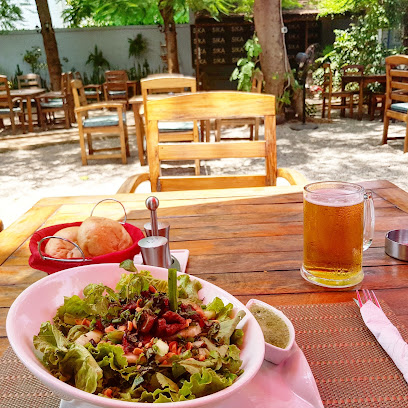
Chick Restaurant
Discover diverse flavors at Chick Restaurant in Ouagadougou – from traditional African dishes to delicious fast food delights.
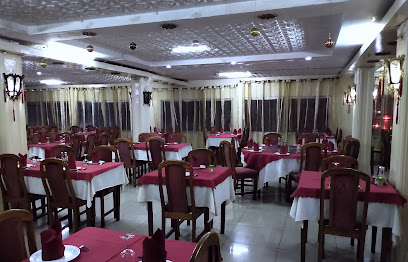
Kadiami
Discover Kadiami in Ouahigouya: A culinary treasure showcasing authentic Burkinabé flavors in a welcoming atmosphere.
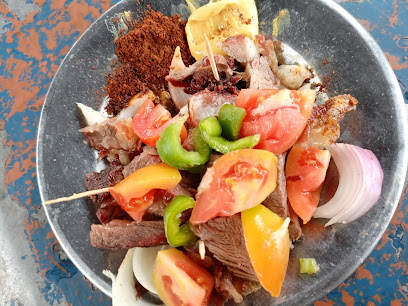
Asanka Locals Restaurant
Experience authentic Burkinabé cuisine at Asanka Locals Restaurant in Ouagadougou - where every dish tells a story.
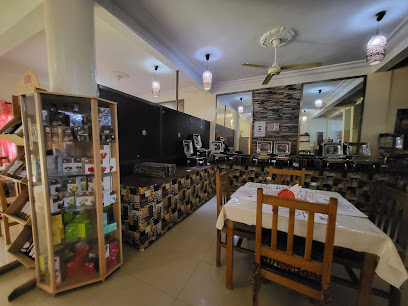
benoua lodge
Experience authentic Burkinabé cuisine at Benoua Lodge in Ouagadougou - where every meal tells a story.
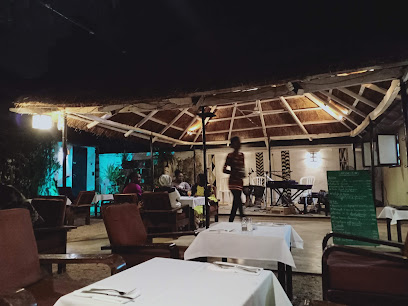
THE GARDEN Restaurant - Lounge
Discover the essence of Burkinabé cuisine at The Garden Restaurant - Lounge, where every meal is an experience surrounded by nature's beauty.
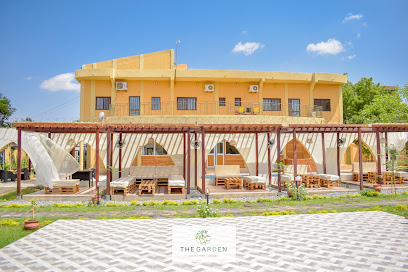
Restaurant Aboussouan
Discover authentic West African flavors at Restaurant Aboussouan in Ouagadougou – a culinary journey you won't forget.
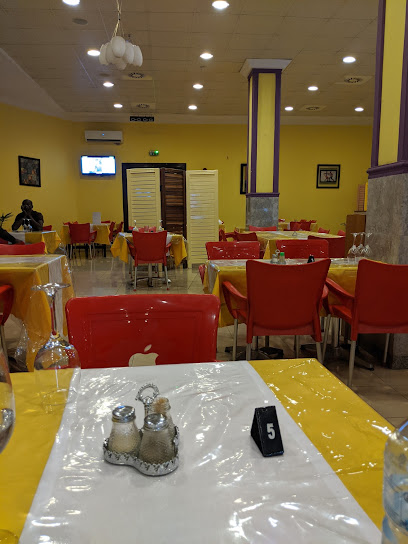
Restaurant l'Élysée
Discover the elegance of Haute French cuisine at Restaurant l'Élysée in Ouagadougou - where exquisite flavors meet exceptional service.
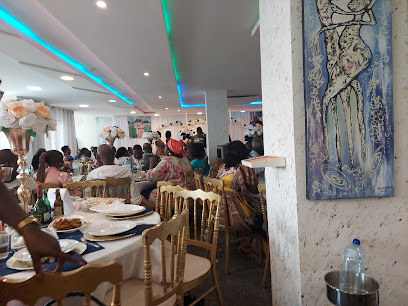
Restaurant Chez Tantie Deguè
Discover authentic Burkinabé cuisine at Restaurant Chez Tantie Deguè in Ouahigouya - where every meal tells a story.
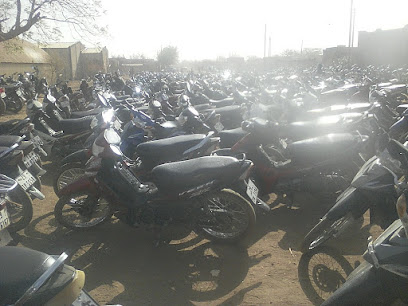
Le Barka
Discover Le Barka: A top-tier restaurant in Ouagadougou offering exquisite dining experiences amidst relaxing leisure facilities.
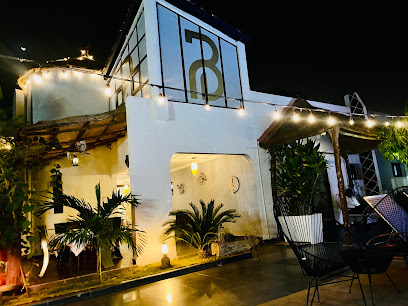
Restaurants Chez Yassia 2
Discover authentic Burkinabé cuisine at Restaurants Chez Yassia 2 in Ouahigouya - where flavor meets affordability.
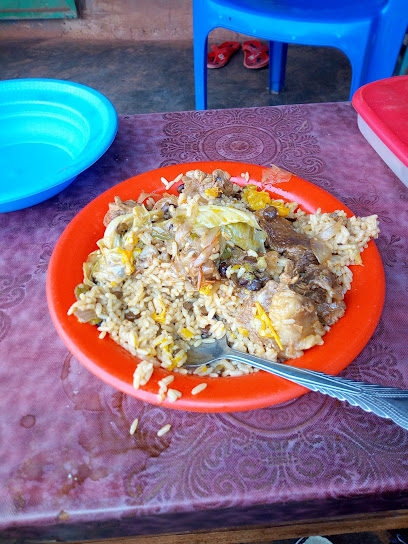
Restaurants
Discover authentic local flavors at this charming Ouahigouya restaurant, where traditional cuisine meets warm hospitality.
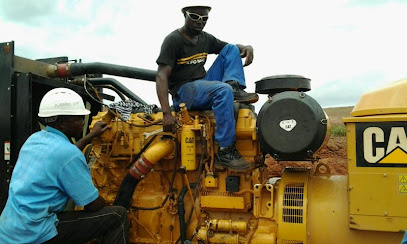
RESTAURANT YENTEMA
Experience the vibrant flavors of Burkina Faso at Restaurant Yentema in Ouagadougou - where local cuisine meets international flair.
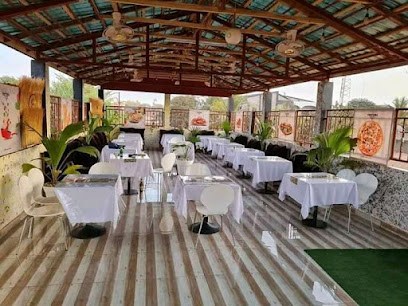
Maquis Resto La frégadellis
Experience authentic Burkinabé cuisine at Maquis Resto La Frégadellis in Ouahigouya - where local flavors meet warm hospitality.
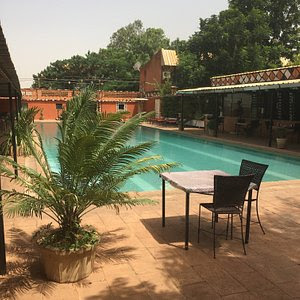
Restaurant Kiosque yassia
Experience authentic Burkinabé cuisine at Restaurant Kiosque Yassia in Ouahigouya - where every dish tells a story.
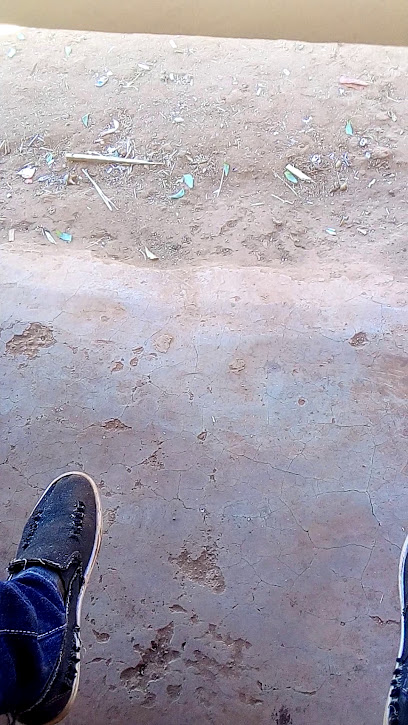
Markets, malls and hidden boutiques
Chambre de commerce de ouahigouya
Explore the vibrant Chambre de Commerce de Ouahigouya, where shopping meets local culture in the heart of Burkina Faso.
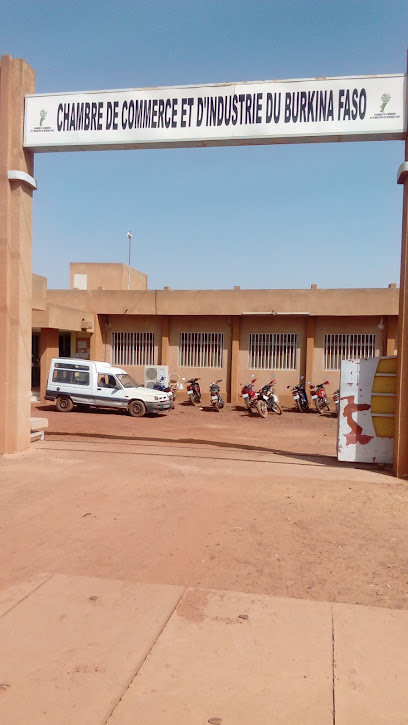
Vegetable Market
Explore Ouahigouya's Vegetable Market: a bustling hub of fresh produce, local culture, and vibrant flavors in the heart of Burkina Faso.
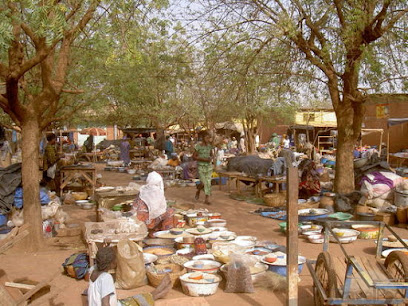
Supermarche Mini-Prix du Nord
Discover local flavors and vibrant culture at Supermarche Mini-Prix du Nord, the premier shopping destination in Ouahigouya, Burkina Faso.
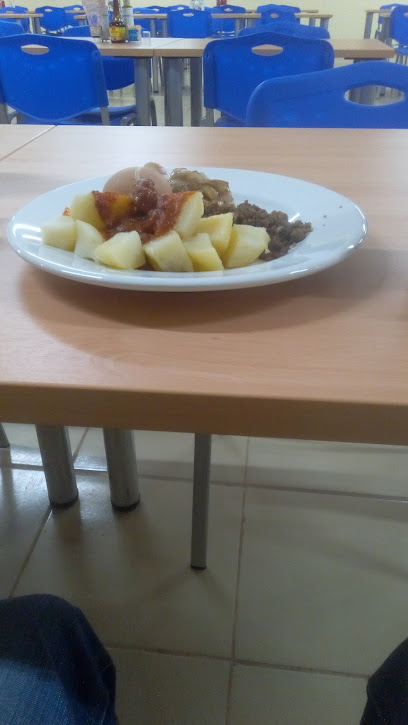
Boutique du 2. QG des Jeunes
Explore the vibrant Boutique du 2. QG des Jeunes in Ouahigouya, where local culture meets diverse shopping experiences for every traveler.
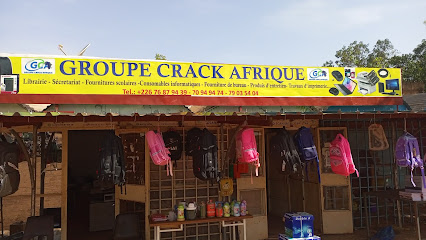
Boutique Splendide
Explore Boutique Splendide in Ouahigouya for unique, locally crafted clothing and accessories that celebrate the vibrant Burkinabé culture.
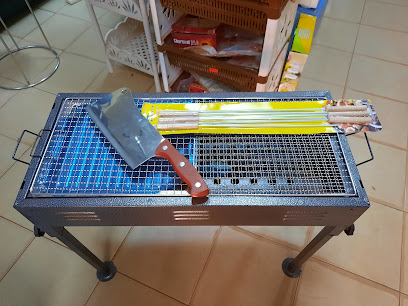
Ets SAWADOGO et Frère
Explore Ets SAWADOGO et Frère in Ouahigouya, a vibrant shopping mall offering local crafts, textiles, and delicious Burkinabé cuisine.
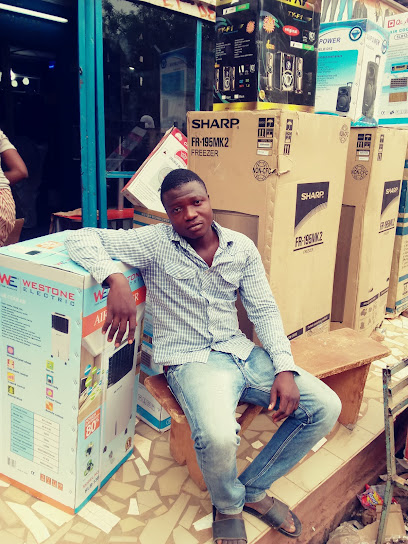
Chez Bruno
Explore the best in electronics at Chez Bruno in Ouahigouya, a tech haven for tourists and locals alike.

Nankosem Ouahigouya
Explore the vibrant Nankosem Ouahigouya Shopping Mall, where local culture and commerce converge in the heart of Burkina Faso.
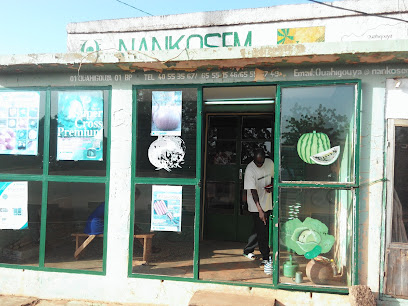
EBAF
Discover EBAF in Ouahigouya: a vibrant shopping mall featuring local crafts, international brands, and delightful dining options for all travelers.
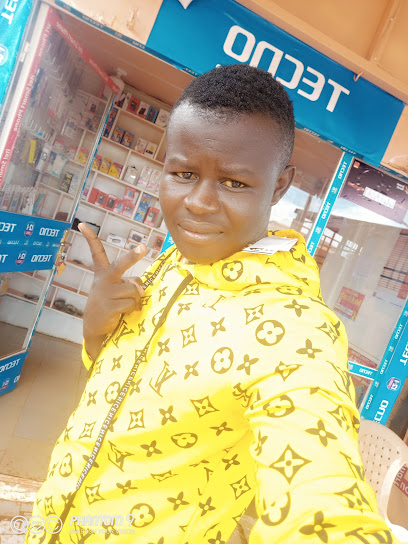
SmartWorld burkina
Explore SmartWorld Burkina, a treasure trove of handcrafted jewelry reflecting the rich cultural heritage of Burkina Faso in Ouahigouya.

Quincaillerie du nord commerce général
Discover authentic craftsmanship at Quincaillerie du Nord, the premier building materials store in Ouahigouya, Burkina Faso.
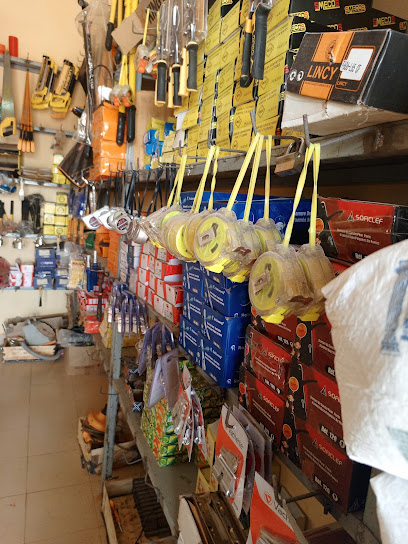
Euro Boutique
Explore Euro Boutique in Ouahigouya for an unforgettable shopping experience blending local charm with international flair.
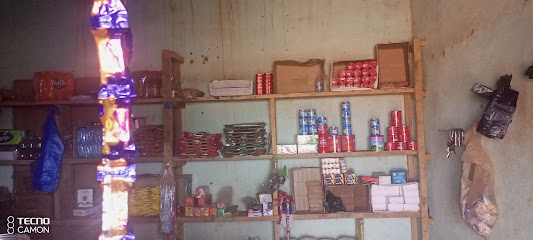
Boutique zogore et frère
Explore unique local crafts and fashion at Boutique Zogore et Frère, a vibrant shopping destination in Ouahigouya, Burkina Faso, showcasing the essence of local artistry.
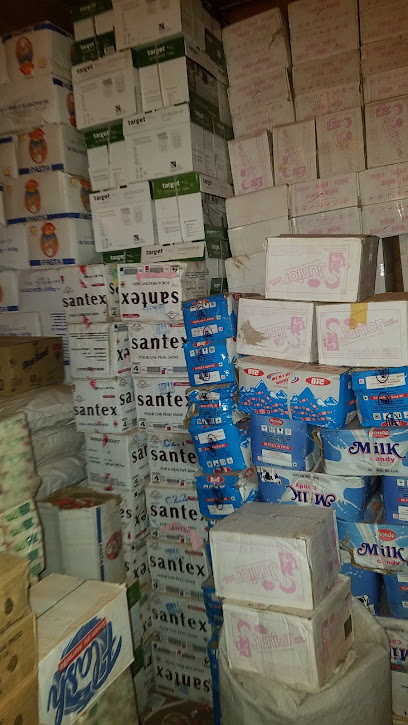
Plaisir dans la vente
Discover a world of organic delights at Plaisir dans la Vente, your go-to health food store in Ouahigouya.

Établissement ZOGORE ET FILS
Discover the vibrant women's clothing collection at Établissement ZOGORE ET FILS in Ouahigouya, showcasing local fashion with a modern twist.
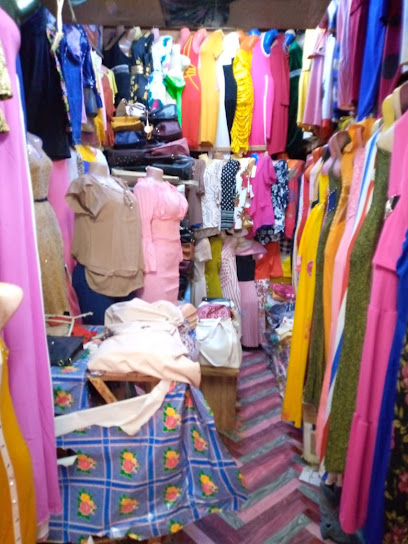
Essential bars & hidden hideouts
Maquis Lingot d'or
Discover the vibrant atmosphere and authentic local flavors at Maquis Lingot d'or, the must-visit bar in Ouahigouya, Burkina Faso.

Bar La Paix
Discover the lively spirit of Ouahigouya at Bar La Paix, a local gem offering drinks, snacks, and a taste of vibrant nightlife.
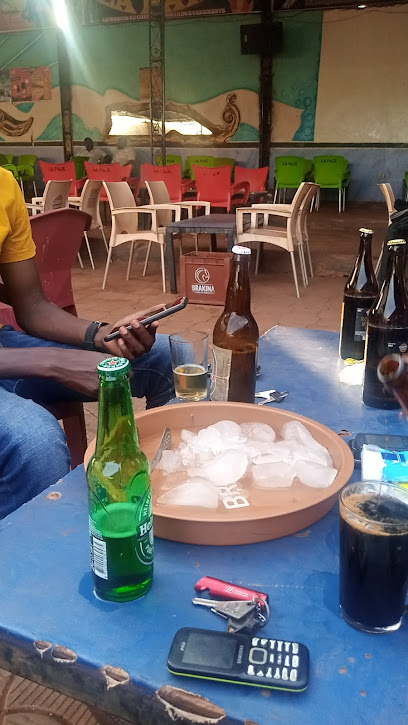
Capsule Show Ouahigouya
Discover the lively nightlife and local culture at Capsule Show Ouahigouya, a bar that offers a unique blend of drinks and entertainment.
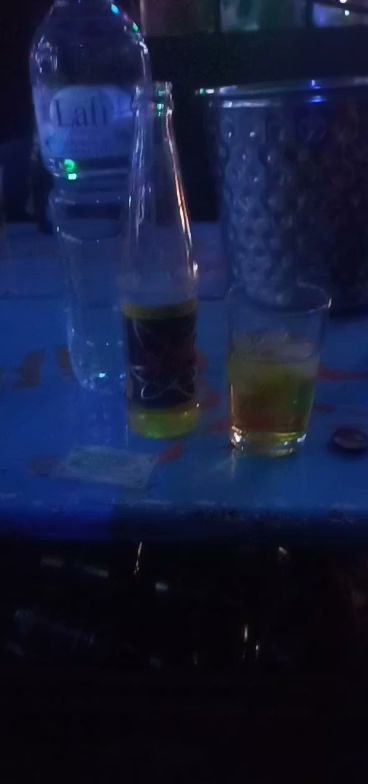
Maquis Africaine
Experience the vibrant atmosphere and authentic flavors of Burkina Faso at Maquis Africaine, the heart of Ouahigouya's nightlife.

SCALE PLUS
Discover the vibrant nightlife of Ouahigouya at SCALE PLUS, a lively bar offering a diverse selection of drinks in a welcoming atmosphere.
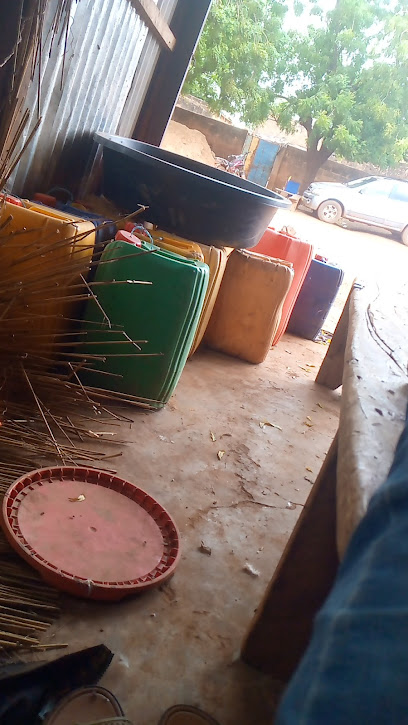
Maquis Escale Plus
Discover the vibrant atmosphere of Maquis Escale Plus, a bar in Ouahigouya offering a delightful taste of local culture and refreshing drinks.

Siminus
Discover the vibrant nightlife at Siminus, a lively bar in Ouahigouya offering a diverse drink selection and a welcoming atmosphere.

Bar Caïman
Discover the lively spirit of Ouahigouya at Bar Caïman, where local drinks and vibrant culture come together for an unforgettable experience.
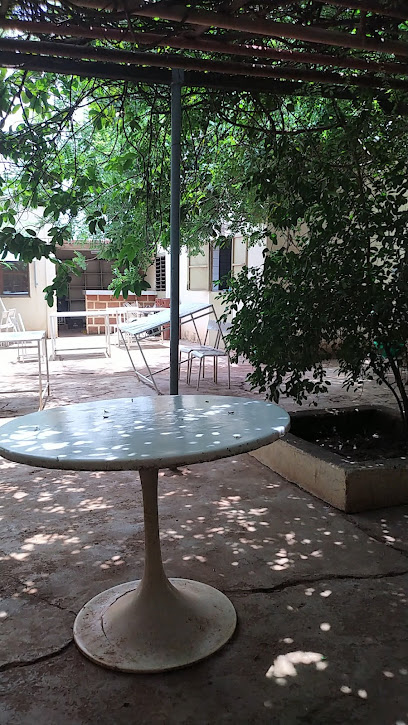
Alimentation la grâce (vin)
Experience the exquisite wines of Alimentation la Grâce, a charming wine bar in Ouahigouya, blending local flavor with a cozy atmosphere.
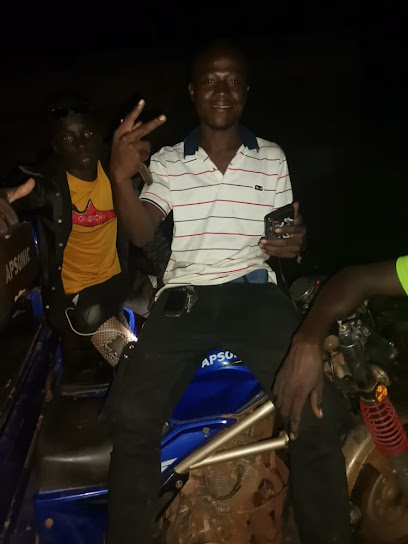
Maquis Somkieta
Experience the vibrant local culture and refreshing drinks at Maquis Somkieta, a lively bar in the heart of Ouahigouya, Burkina Faso.

CAFÉOTHÈQUE LAAFI ️
Discover authentic grilled delicacies at CAFÉOTHÈQUE LAAFI in Ouahigouya, where local flavors and a vibrant atmosphere come together.
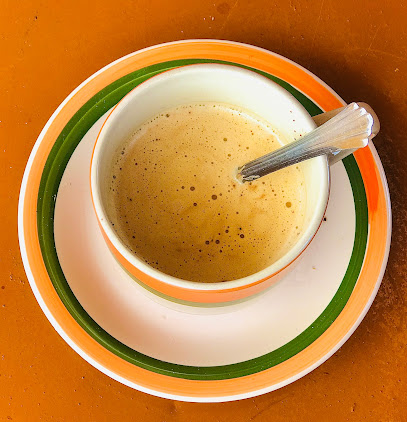
Buvette Chez Tinto
Discover the authentic local bar experience at Buvette Chez Tinto, where culture, flavor, and friendly faces await in Ouahigouya.
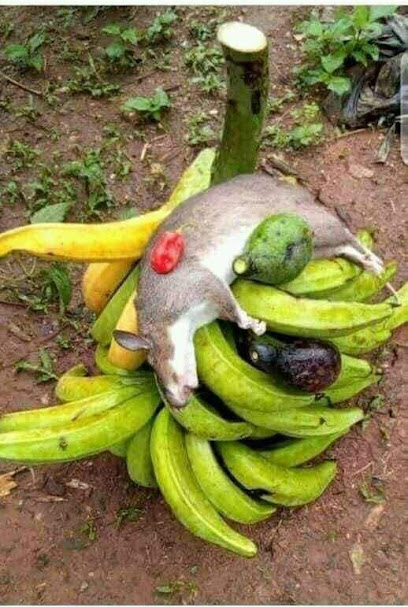
Maquis le nil
Discover the vibrant Maquis le nil in Ouahigouya, where local culture blends with a lively bar atmosphere for an unforgettable experience.
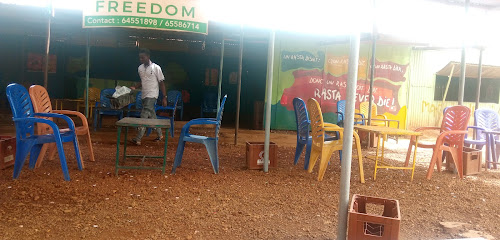
Maquis Resto Nomwendé
Experience the vibrant local culture at Maquis Resto Nomwendé in Ouahigouya, where delicious cuisine and lively ambiance await.
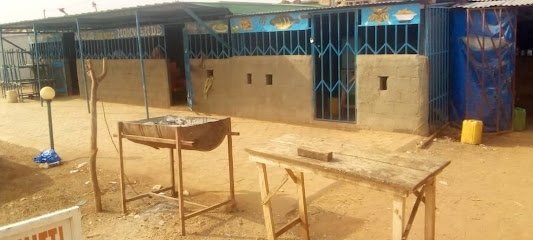
Local Phrases
-
- HelloSalut
[sa-lu] - GoodbyeAu revoir
[oh re-vwahr] - YesOui
[wee] - NoNon
[noh] - Please/You're welcomeS'il vous plaît/De rien
[seel voo pleh / deh ryan] - Thank youMerci
[mehr-see] - Excuse me/SorryPardon/ Désolé
[pahr-dohn / deh-zoh-leh] - How are you?Comment ça va?
[ko-mohn sah vah?] - Fine. And you?Bien. Et toi?
[byen. ay twah?] - Do you speak English?Parlez-vous anglais?
[par-lay voo ahn-glay?] - I don't understandJe ne comprends pas
[zhuh nuh kohm-prahnd pah]
- HelloSalut
-
- I'd like to see the menu, pleaseJe voudrais voir le menu, s'il vous plaît
[zhuh voo-dray vwahr luh muh-nyoo, seel voo pleh] - I don't eat meatJe ne mange pas de viande
[zhuh nuh mahnj pah duh vyand] - Cheers!Santé!
[sahn-tay] - I would like to pay, pleaseJe voudrais payer, s'il vous plaît
[zhuh voo-dray pay-yay, seel voo pleh]
- I'd like to see the menu, pleaseJe voudrais voir le menu, s'il vous plaît
-
- Help!Au secours!
[oh seh-koor] - Go away!Allez-vous en!
[ah-lay voo zahn] - Call the Police!Appelez la police!
[ah-peh-lay lah poh-lees] - Call a doctor!Appelez un médecin!
[ah-peh-lay uh may-deh-sahn] - I'm lostJe suis perdu
[zhuh swee pair-doo] - I'm illJe suis malade
[zhuh swee mah-lahd]
- Help!Au secours!
-
- I'd like to buy...Je voudrais acheter...
[zhuh voo-dray zah-shay...] - I'm just lookingJe regarde juste
[zhuh ruh-gard zhuhst] - How much is it?Combien ça coûte?
[kohm-byen sah koot?] - That's too expensiveC'est trop cher
[say troh shair] - Can you lower the price?Pouvez-vous baisser le prix?
[poo-veh voo bay-say luh pree?]
- I'd like to buy...Je voudrais acheter...
-
- What time is it?Quelle heure est-il?
[kel uhr eh-teel] - It's one o'clockIl est une heure
[eel eh oon uhr] - Half past (10)Dix et demi
[dees ay duh-mee] - MorningMatin
[mah-tahn] - AfternoonAprès-midi
[ah-pray mee-dee] - EveningSoir
[swah] - YesterdayHier
[yehr] - TodayAujourd'hui
[oh-zhoor-dwee] - TomorrowDemain
[duh-mahn] - 1Un
[uhn] - 2Deux
[duh] - 3Trois
[twah] - 4Quatre
[kat] - 5Cinq
[sank] - 6Six
[sees] - 7Sept
[set] - 8Huit
[wheet] - 9Neuf
[nurf] - 10Dix
[dees]
- What time is it?Quelle heure est-il?
-
- Where's a/the...?Où est le/la...?
[oo eh luh/lah] - What's the address?Quelle est l'adresse?
[kel eh la-dress] - Can you show me (on the map)?Pouvez-vous me montrer (sur la carte)?
[poo-veh voo muh mohn-tray (soor lah kart)] - When's the next (bus)?Quand est le prochain (bus)?
[kahn eh luh proh-shahn (boos)] - A ticket (to ....)Un billet (pour ...)
[uhn bee-yay (poor)]
- Where's a/the...?Où est le/la...?
History of Ouahigouya
-
Ouahigouya, founded in the early 18th century, is one of the oldest cities in Burkina Faso. Established by the Yatenga Kingdom, it served as the capital and a pivotal center for trade, culture, and governance.
-
Under the reign of Naaba Kango (circa 1740-1787), Ouahigouya flourished as a major political and economic hub. Naaba Kango is remembered for his administrative skills and efforts to expand the kingdom's influence, including his strategic alliances and military campaigns.
-
In the late 19th and early 20th centuries, Ouahigouya came under French colonial rule. The city became a focal point in the struggle between local kingdoms and the French forces. Significant battles and negotiations took place, ultimately leading to the area's incorporation into French West Africa.
-
Following Burkina Faso's independence from France in 1960, Ouahigouya experienced a period of modernization. The city saw improvements in infrastructure, education, and healthcare, making it a vital regional center. Efforts to preserve its historical and cultural heritage also became prominent during this era.
-
Ouahigouya is renowned for its vibrant cultural festivals, such as the annual 'Dagara' festival, which celebrates the rich heritage of the Mossi people. Traditional dances, music, and rituals are performed, reflecting the city's deep cultural roots and community spirit.
-
The city is home to several architectural landmarks, including the Naaba Kango Palace and the Great Mosque of Ouahigouya. These structures not only serve as places of historical significance but also as symbols of the city's enduring legacy and cultural identity.
-
Historically, Ouahigouya has been a key trading post due to its strategic location. The city's markets bustle with activity, offering a variety of goods ranging from local crafts to agricultural products. This role as a trade hub has been essential in fostering economic growth and cultural exchange.
Ouahigouya Essentials
-
Ouahigouya is located in the northern part of Burkina Faso. The nearest international airport is Ouagadougou International Airport in the capital city of Ouagadougou, approximately 182 kilometers away. From Ouagadougou, you can take a bus or hire a private taxi to Ouahigouya. The bus journey typically takes around 4 to 5 hours depending on road conditions. Private taxis are quicker but more expensive. Alternatively, you can rent a car if you prefer to drive yourself.
-
Ouahigouya is a relatively small town, and many of its attractions are within walking distance. For longer trips within the town, local taxis are available and reasonably priced. Motorbike taxis, known as 'moto-taxis,' are also a common mode of transport. Public minibuses connect Ouahigouya to nearby towns and villages. Renting a car is an option but be prepared for variable road conditions.
-
The official currency in Burkina Faso is the West African CFA Franc (XOF). Cash is the most common form of payment, so it is advisable to carry sufficient cash. Credit cards are accepted in some hotels and larger establishments but not commonly used in smaller shops and markets. ATMs are available in Ouahigouya, but it's wise to withdraw cash in Ouagadougou before traveling to ensure you have enough funds.
-
Ouahigouya is generally safe, but standard safety precautions should be taken. Avoid walking alone at night, especially in unfamiliar areas. Petty theft can occur, so keep an eye on your belongings in crowded places like markets. Some areas on the outskirts of town have higher crime rates; it's best to stay within well-populated and well-lit areas. Always stay updated on travel advisories.
-
In case of emergency, dial 17 for police assistance and 18 for medical emergencies. The main hospital in Ouahigouya is the Centre Hospitalier Régional de Ouahigouya, which provides basic medical services. It is recommended to have travel insurance that covers medical emergencies. Pharmacies are available for minor health issues where you can purchase over-the-counter medications.
-
Fashion: Do dress modestly, especially when visiting religious sites. Avoid wearing revealing clothing. Religion: Do respect local customs and traditions, including taking off your shoes when entering mosques. Public Transport: Do be polite and greet fellow passengers. Don't eat or drink on public transport. Greetings: Do greet people with a handshake and use the right hand. Avoid using the left hand for greetings or giving items. Eating & Drinking: Do try local delicacies and accept food offerings graciously. Don't refuse hospitality, as it is considered impolite.
-
To experience Ouahigouya like a local, visit the central market where you can buy fresh produce and traditional goods. Engage with locals as they are often friendly and eager to share stories about their town. Don’t miss visiting the Yatenga Royal Palace to learn about the history of the region. For a unique experience, take part in a local festival if your visit coincides with one, such as the annual Yam Festival, which celebrates the harvest season.
Nearby Cities to Ouahigouya
-
Things To Do in Koudougou
-
Things To Do in Ziniaré
-
Things To Do in Ouagadougou
-
Things To Do in Dédougou
-
Things To Do in Bobo-Dioulasso
-
Things To Do in Wa
-
Things To Do in Niamey
-
Things To Do in Tamale
-
Things To Do in Bamako
-
Things To Do in Sunyani
-
Things To Do in Kumasi
-
Things To Do in Atakpamé
-
Things To Do in Kpalimé
-
Things To Do in Yamoussoukro
-
Things To Do in Notse




